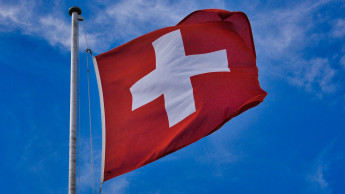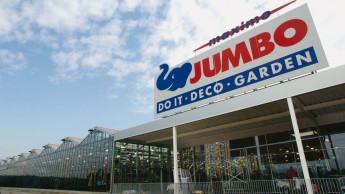deep insights, facts & figures
A new Obi outlet was inaugurated in Thun in the autumn of last year. What is special about Swiss DIY stores?
Last autumn, at the end of an 80-week construction phase, came the opening in the Swiss town of Thun of the latest Obi outlet in Switzerland, embedded in the “Panorama-Center Thun-Süd”, which was erected under the overall control of the Migros Aare cooperative. And, in the conviction of Thomas Meyer, divisional director for DIY stores at Migros Aare, the view it offers of the Alps makes it one of the most spectacular DIY store locations anywhere. The DIY store is about 8 500 m² in size, the integrated garden “paradise” alone covers 3 500 m². This also includes a pet department. Otherwise, in terms of organisation, range and products the Thun Obi store corresponds in many ways to what customers are familiar with from Germany, though with Swiss specifications when it comes to assortment and products. However, there is one important difference over and above that: Switzerland is a service society and the quality expectation amounts to practically 100 per cent. An interior door with a flaw, for instance, will not find acceptance even if the price is reduced. Contrary to the Germans, the Swiss tend to be prepared to make use of add-on services and also to pay an appropriate price for such things as home delivery or installation. “Straightforward solutions that are quick to install and use are essential for our customers. While prices are important in Switzerland, their role is not the main one,” says Thomas Meyer with great emphasis. This has to do with the scant amount of leisure time available. “Swissmade” as a label for Swiss products is important in many areas – especially when it comes to food products. However, there are few Swiss suppliers in the DIY store area, so that customers are prepared to pay more for a Swiss product. The Swiss are not actually “do-it-yourselfers”. That reflects the low rate of home ownership (between 35 and 40 per cent, according to the survey referred to; the figure is 50 per cent for Germany) and the restrictive standards applied to building alterations. Once completed, many DIY jobs have to be approved by an officially recognised master craftsman. Compared with Germany, materials and tools are only tax-deductible to a limited degree, while invoices from contractors including materials are fully deductible. The average working week in Switzerland comes to 41.6 hours (Germany: 38.2 hours), with four weeks’ holiday (Germany: six) and around four fewer public holidays than in Germany. The cultural differences between Switzerland…
Related articles
Read also








